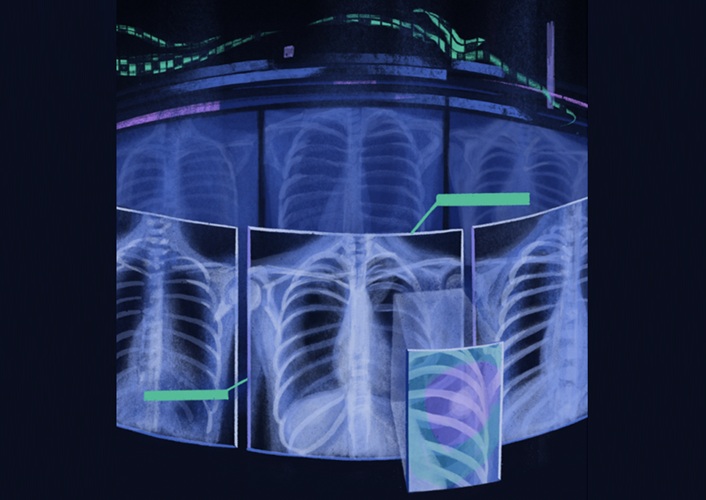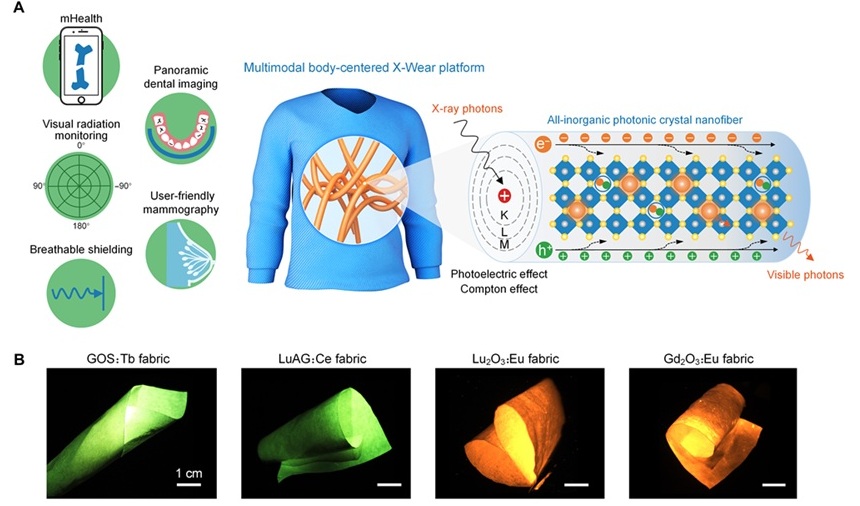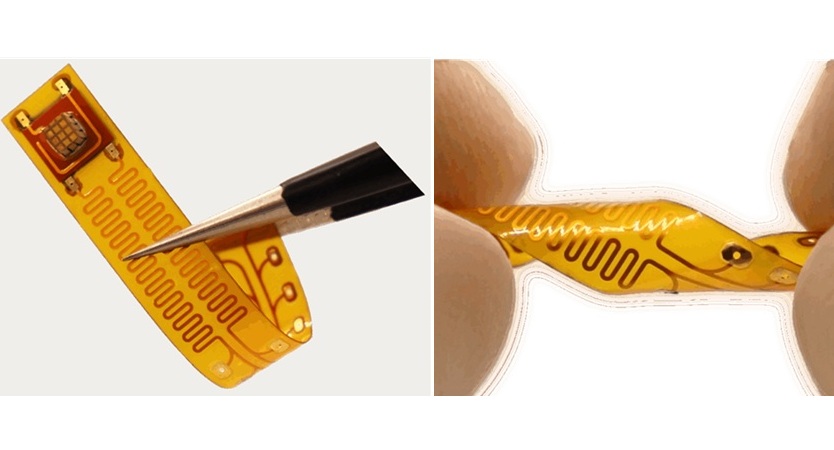Contrast-Enhanced Breast MRI May Predict Chemotherapy’s Effectiveness
|
By MedImaging International staff writers Posted on 12 Jun 2012 |
Magnetic resonance imaging (MRI) can provide an indication of a breast tumor’s response to presurgical chemotherapy considerably earlier than possible through clinical examination, according to a new study.
The study’s findings were published online May 25, 2012, in the journal Radiology. Women with breast cancer often undergo chemotherapy prior to surgery. Research has shown that women who receive this treatment, known as neoadjuvant chemotherapy, are more likely to achieve breast conservation than those receiving chemotherapy after surgery.
Clinicians monitor a patient’s response to neoadjuvant chemotherapy through clinical measurements of the tumor’s size and location. Contrast-enhanced MRI offers a potential option to the clinical approach through its ability to identify blood vessel formation in tumors, known as angiogenesis. Angiogenesis is an earlier and more accurate marker of tumor response.
“MRI was better than the clinical approach for predicting which patients would go on to have complete tumor response,” said Nola M. Hylton, PhD, professor of radiology and biomedical imaging at the University of California in San Francisco (CA, USA). “It gave us great information on early response to treatment.”
For the study, researchers analyzed data from ACRIN 6657, the imaging component of the multicenter Investigation of Serial Studies to Predict Your Therapeutic Response with Imaging And moLecular Analysis (I-SPY TRIAL) breast cancer trial. They compared MRI and clinical assessment in 216 female patients ranging in age from 26 to 68 years undergoing neoadjuvant chemotherapy for stage II or III breast cancer. MRI scanning sessions were performed before, during, and after administration of a chemotherapy regimen. The researchers correlated imaging results with subsequent laboratory analysis of surgical samples.
MRI size measurements were superior to clinical examination at all time-points, with tumor volume change demonstrating the greatest comparative benefit at the second MRI exam. MRI was better than clinical assessment in predicting both complete tumor response and residual cancer burden.
The study showed how imaging can play a vital role in characterizing a tumor and monitoring treatment response. “What we see on imaging helps us define not just the size of the tumor but its biological activity,” Dr. Hylton said. “We can observe if the signal increases after contrast injection, and interpret that increase as angiogenic activity. We can also use water diffusion measurements with MRI to provide an indirect reflection of the density of the cells.”
Dr. Hylton and colleagues currently are evaluating I-SPY data to see if MRI is better for predicting the likelihood of breast cancer recurrence. They expect to publish those results later this year.
Related Links:
University of California in San Francisco
The study’s findings were published online May 25, 2012, in the journal Radiology. Women with breast cancer often undergo chemotherapy prior to surgery. Research has shown that women who receive this treatment, known as neoadjuvant chemotherapy, are more likely to achieve breast conservation than those receiving chemotherapy after surgery.
Clinicians monitor a patient’s response to neoadjuvant chemotherapy through clinical measurements of the tumor’s size and location. Contrast-enhanced MRI offers a potential option to the clinical approach through its ability to identify blood vessel formation in tumors, known as angiogenesis. Angiogenesis is an earlier and more accurate marker of tumor response.
“MRI was better than the clinical approach for predicting which patients would go on to have complete tumor response,” said Nola M. Hylton, PhD, professor of radiology and biomedical imaging at the University of California in San Francisco (CA, USA). “It gave us great information on early response to treatment.”
For the study, researchers analyzed data from ACRIN 6657, the imaging component of the multicenter Investigation of Serial Studies to Predict Your Therapeutic Response with Imaging And moLecular Analysis (I-SPY TRIAL) breast cancer trial. They compared MRI and clinical assessment in 216 female patients ranging in age from 26 to 68 years undergoing neoadjuvant chemotherapy for stage II or III breast cancer. MRI scanning sessions were performed before, during, and after administration of a chemotherapy regimen. The researchers correlated imaging results with subsequent laboratory analysis of surgical samples.
MRI size measurements were superior to clinical examination at all time-points, with tumor volume change demonstrating the greatest comparative benefit at the second MRI exam. MRI was better than clinical assessment in predicting both complete tumor response and residual cancer burden.
The study showed how imaging can play a vital role in characterizing a tumor and monitoring treatment response. “What we see on imaging helps us define not just the size of the tumor but its biological activity,” Dr. Hylton said. “We can observe if the signal increases after contrast injection, and interpret that increase as angiogenic activity. We can also use water diffusion measurements with MRI to provide an indirect reflection of the density of the cells.”
Dr. Hylton and colleagues currently are evaluating I-SPY data to see if MRI is better for predicting the likelihood of breast cancer recurrence. They expect to publish those results later this year.
Related Links:
University of California in San Francisco
Latest MRI News
- AI-Assisted Model Enhances MRI Heart Scans
- AI Model Outperforms Doctors at Identifying Patients Most At-Risk of Cardiac Arrest
- New MRI Technique Reveals Hidden Heart Issues
- Shorter MRI Exam Effectively Detects Cancer in Dense Breasts
- MRI to Replace Painful Spinal Tap for Faster MS Diagnosis
- MRI Scans Can Identify Cardiovascular Disease Ten Years in Advance
- Simple Brain Scan Diagnoses Parkinson's Disease Years Before It Becomes Untreatable
- Cutting-Edge MRI Technology to Revolutionize Diagnosis of Common Heart Problem
- New MRI Technique Reveals True Heart Age to Prevent Attacks and Strokes
- AI Tool Predicts Relapse of Pediatric Brain Cancer from Brain MRI Scans
- AI Tool Tracks Effectiveness of Multiple Sclerosis Treatments Using Brain MRI Scans
- Ultra-Powerful MRI Scans Enable Life-Changing Surgery in Treatment-Resistant Epileptic Patients
- AI-Powered MRI Technology Improves Parkinson’s Diagnoses
- Biparametric MRI Combined with AI Enhances Detection of Clinically Significant Prostate Cancer
- First-Of-Its-Kind AI-Driven Brain Imaging Platform to Better Guide Stroke Treatment Options
- New Model Improves Comparison of MRIs Taken at Different Institutions
Channels
Radiography
view channel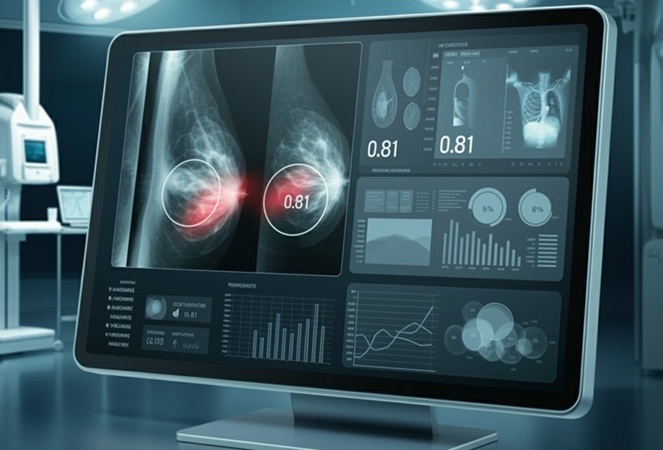
RSNA AI Challenge Models Can Independently Interpret Mammograms
Breast cancer screening aims to detect cancers early while minimizing unnecessary recalls, yet balancing sensitivity and specificity remains a challenge. Automating detection in mammograms could help radiologists... Read more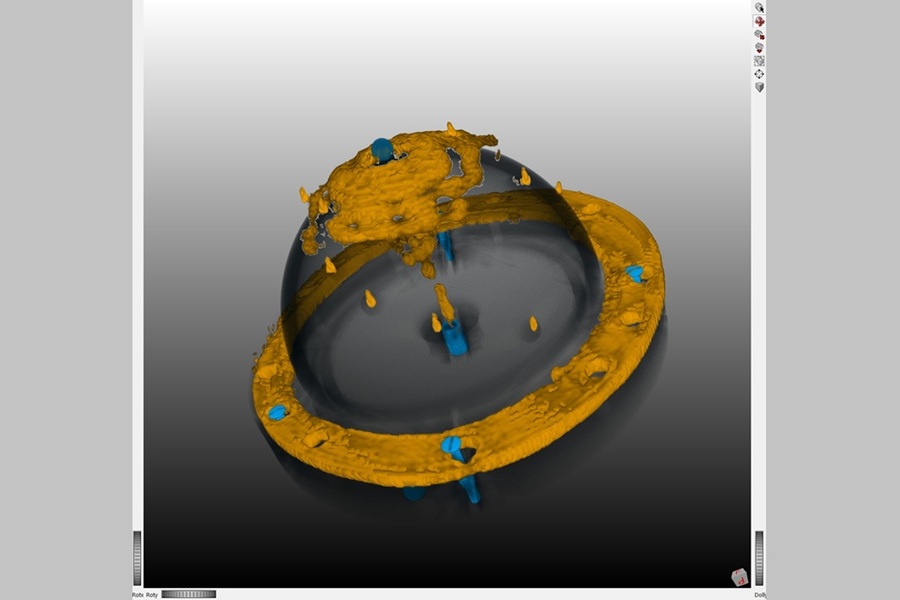
New Technique Combines X-Ray Imaging and Radar for Safer Cancer Diagnosis
X-ray imaging methods, such as mammography and computed tomography (CT) scans, are essential for diagnosing and monitoring breast and lung cancer. While CT provides valuable three-dimensional insights,... Read moreUltrasound
view channel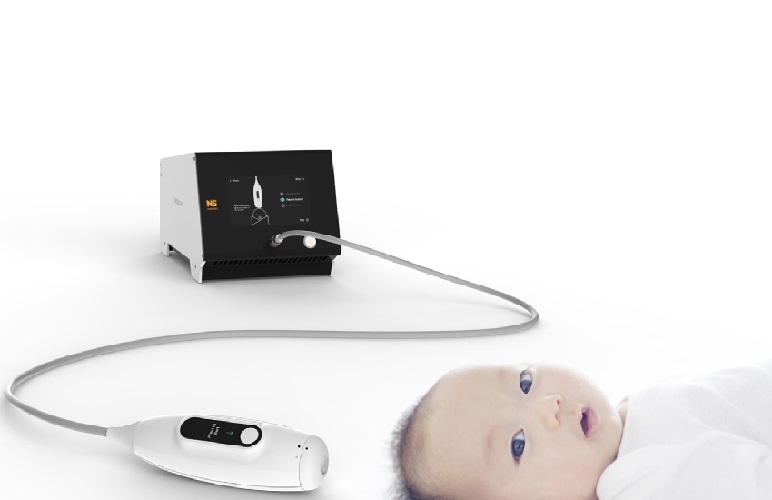
Non-Invasive Ultrasound-Based Tool Accurately Detects Infant Meningitis
Meningitis, an inflammation of the membranes surrounding the brain and spinal cord, can be fatal in infants if not diagnosed and treated early. Even when treated, it may leave lasting damage, such as cognitive... Read more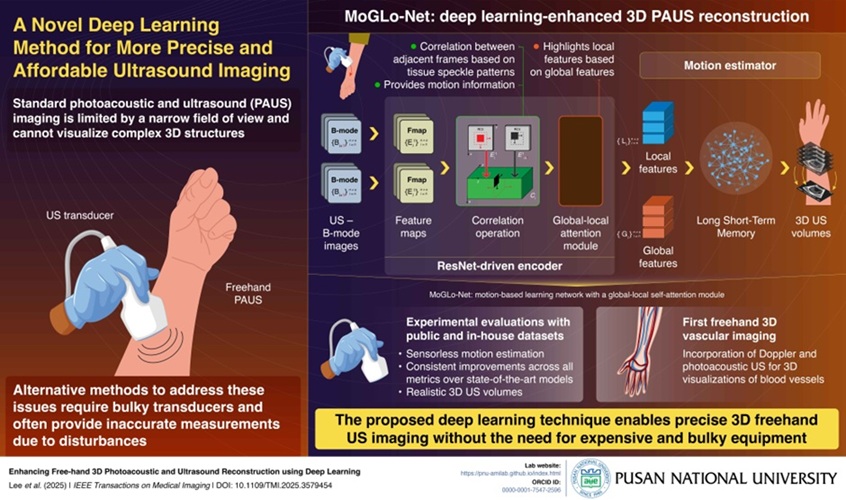
Breakthrough Deep Learning Model Enhances Handheld 3D Medical Imaging
Ultrasound imaging is a vital diagnostic technique used to visualize internal organs and tissues in real time and to guide procedures such as biopsies and injections. When paired with photoacoustic imaging... Read moreNuclear Medicine
view channel
Novel Bacteria-Specific PET Imaging Approach Detects Hard-To-Diagnose Lung Infections
Mycobacteroides abscessus is a rapidly growing mycobacteria that primarily affects immunocompromised patients and those with underlying lung diseases, such as cystic fibrosis or chronic obstructive pulmonary... Read more
New Imaging Approach Could Reduce Need for Biopsies to Monitor Prostate Cancer
Prostate cancer is the second leading cause of cancer-related death among men in the United States. However, the majority of older men diagnosed with prostate cancer have slow-growing, low-risk forms of... Read moreGeneral/Advanced Imaging
view channel
CT Colonography Beats Stool DNA Testing for Colon Cancer Screening
As colorectal cancer remains the second leading cause of cancer-related deaths worldwide, early detection through screening is vital to reduce advanced-stage treatments and associated costs.... Read more
First-Of-Its-Kind Wearable Device Offers Revolutionary Alternative to CT Scans
Currently, patients with conditions such as heart failure, pneumonia, or respiratory distress often require multiple imaging procedures that are intermittent, disruptive, and involve high levels of radiation.... Read more
AI-Based CT Scan Analysis Predicts Early-Stage Kidney Damage Due to Cancer Treatments
Radioligand therapy, a form of targeted nuclear medicine, has recently gained attention for its potential in treating specific types of tumors. However, one of the potential side effects of this therapy... Read moreImaging IT
view channel
New Google Cloud Medical Imaging Suite Makes Imaging Healthcare Data More Accessible
Medical imaging is a critical tool used to diagnose patients, and there are billions of medical images scanned globally each year. Imaging data accounts for about 90% of all healthcare data1 and, until... Read more
Global AI in Medical Diagnostics Market to Be Driven by Demand for Image Recognition in Radiology
The global artificial intelligence (AI) in medical diagnostics market is expanding with early disease detection being one of its key applications and image recognition becoming a compelling consumer proposition... Read moreIndustry News
view channel
GE HealthCare and NVIDIA Collaboration to Reimagine Diagnostic Imaging
GE HealthCare (Chicago, IL, USA) has entered into a collaboration with NVIDIA (Santa Clara, CA, USA), expanding the existing relationship between the two companies to focus on pioneering innovation in... Read more
Patient-Specific 3D-Printed Phantoms Transform CT Imaging
New research has highlighted how anatomically precise, patient-specific 3D-printed phantoms are proving to be scalable, cost-effective, and efficient tools in the development of new CT scan algorithms... Read more
Siemens and Sectra Collaborate on Enhancing Radiology Workflows
Siemens Healthineers (Forchheim, Germany) and Sectra (Linköping, Sweden) have entered into a collaboration aimed at enhancing radiologists' diagnostic capabilities and, in turn, improving patient care... Read more












